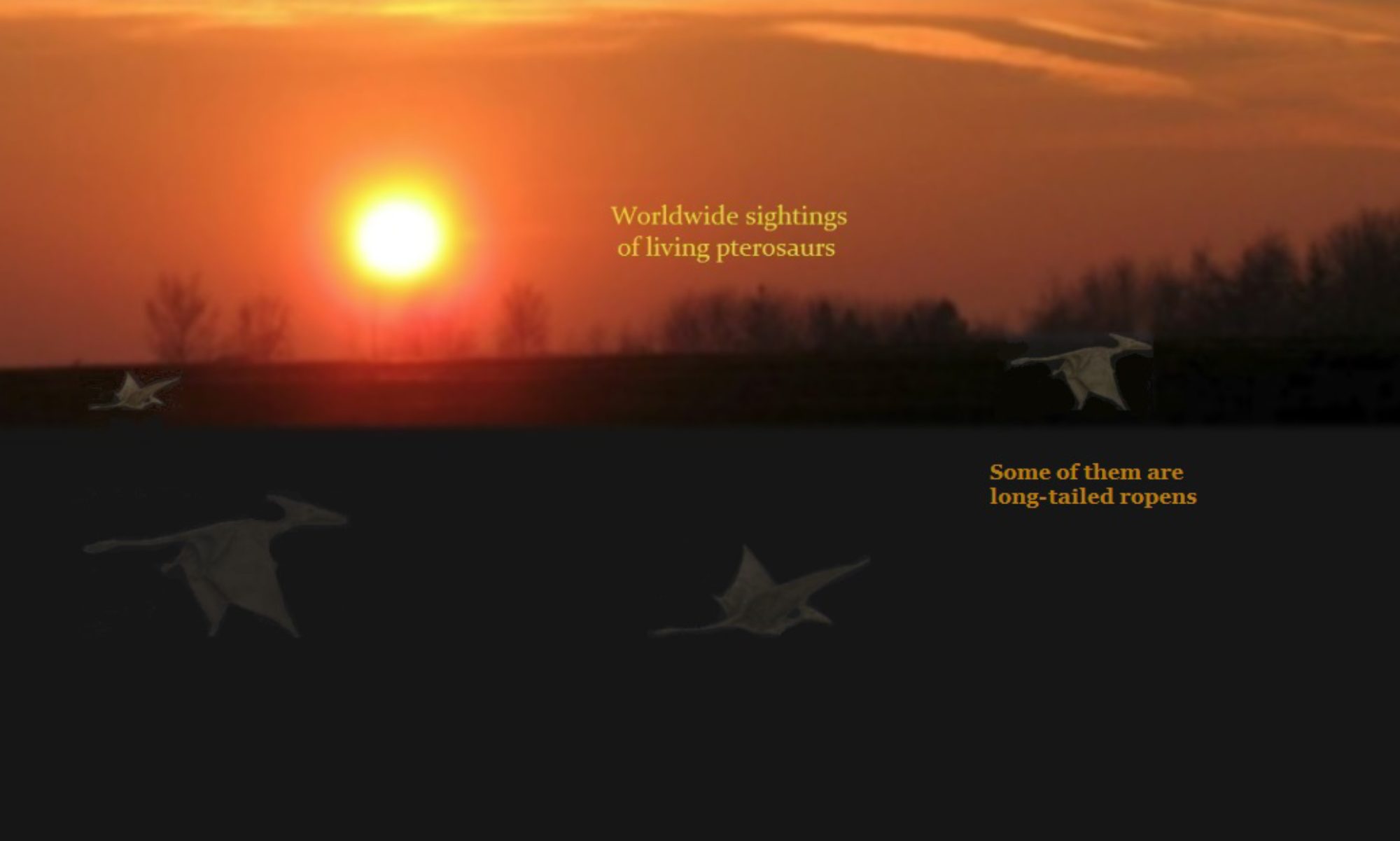A blog post by the well-known cryptozoologist Loren Coleman was aimed at creationists who support modern-pterosaur research, but the post was focused on the modern-pterosaur researcher Jonathan Whitcomb, probably because this researcher is so vocal. There are problems with Mr. Coleman’s reasoning, which I would like to explain.
Loren Coleman has said, “Cryptozoology used in the support of extreme, unsupportable theories of creationism is unscientific and, perhaps, worse.” But Coleman fails to consider critical details, and that failure seems to have severely clouded his vision or visa versa.
Look at this particular researcher mentioned by Coleman: Jonathan Whitcomb. Those who have read his books know that he is not a Young Earth Creationist, at least he believes in a universe much older than the 6,000 years supported by many YEC’s. Perhaps Coleman did not look deeply enough, failing to do his own thorough research, before passing judgement. Also, Coleman seems to stray far afield from the subject: eyewitness sightings of modern living pterosaurs.
“Cryptozoology used in the support of . . .” seems to imply that some cryptozoologists are objective and others, having personal agendas, are biased. Has Coleman forgotten the ageless truth that humans are, by their nature, imperfect and subject to personal bias? Has he considered that everything each of us does or says is influenced by deep motivations based on our unique characteristics, and that improper use of anything is not restricted to those whose philosophical beliefs differ from our own?
When Coleman says, “unsupportable theories of creationism,” I really begin to wonder what he has read by Whitcomb. Searching for Ropens, the first book written by Whitcomb, does support belief in God and belief in the Bible as the word of God; but the theories mentioned in that book are mostly related to the General Theory of Evolution. He even gives mathematical evidence to discredit Darwin’s Common Ancestry concept. Whitcomb does not propose any theory of creationism nearly as much as he points out problems with Darwin’s theory. To top it off, why does Coleman say “unsupportable theories,” when Whitcomb explains the mathematical basis for doubting Darwin? Mathematical concepts can be checked out and tested; microbes evolving into humans over many millions of years cannot be tested.
Coleman seems to have fallen into the trap of bulverism: pointing out supposed faults in the person with whom one disagrees, rather than becoming involved in reasoning. “Bulverism” is a word invented by C. S. Lewis long ago, but that subject is a bit off topic. Use Google with: bulverism pterosaurs.
Before condemning creationists or rejecting outright their scientific or cryptozoological research, remember the accomplishements of Sir Isaac Newton. Also remember that he may have spent more time studying the Bible than working in science. He believed in literal interpretations of Biblical scripture, and his judgement seems to have been none the worse for his Christian faith. Remember that.
“Flying Creatures and Flailing Paleontologists” and bulverism
Cryptozoology book Live Pterosaurs in America by Jonathan Whitcomb



One Reply to “Critics of Modern-Pterosaur Research”
Comments are closed.